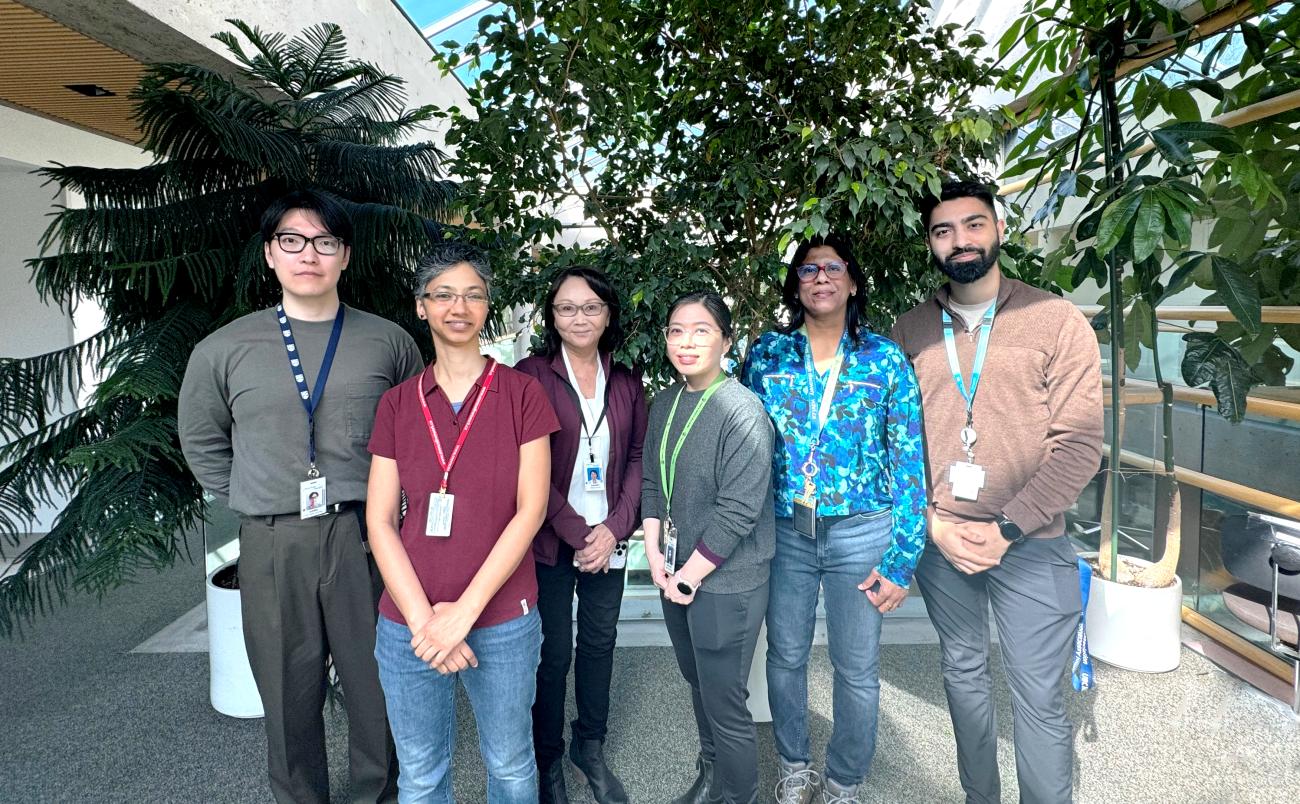
Researchers at Dr. Joanne Matsubara’s lab are investigating treatments to halt the progression of wet age-related macular degeneration.
Age-related macular degeneration (AMD) is a debilitating disease affecting 2.5 million older adults in Canada. Characterized by two main types — dry and wet — the disease targets central vision, impacting activities requiring fine motor skills such as reading or driving.
Research is making great strides to find a cure and improve the quality of life for those impacted by AMD. Leading the charge is Vancouver Coastal Health Research Institute (VCHRI) investigator Dr. Joanne Matsubara, whose team of vision experts at the Vancouver General Hospital (VGH) Eye Care Centre is studying treatments for various retinal diseases.

Dry AMD occurs due to thinning of the macula, the small section of the retina located at the back of the eye. A more severe form of the disease is wet AMD, which causes blood vessels below the thinning macula to grow abnormally. If left untreated, these blood vessels can leak fluid into the eye that can lead to significant vision loss.
While current treatments exist and target vascular endothelial growth factor (VEGF) for the advanced form of wet AMD, they have inconsistent effectiveness and potential to cause long-term retinal damage. Matsubara’s team is focused on novel solutions to address the earliest cellular events to prevent AMD from developing, as well as preventing the progression of abnormal blood vessel growth before it causes irreversible damage to the eye.
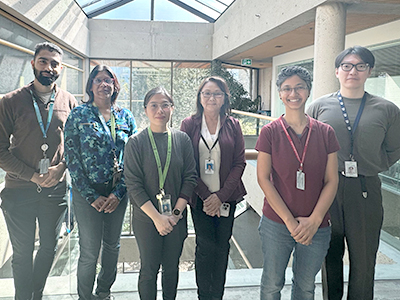
“Our research aims to address a key piece of the puzzle by treating the root cause of the disease at the molecular level,” notes Matsubara.
Collaboration strengthens research potential
The lab is particularly interested in the role of a specific enzyme called granzyme B (GzmB) — an enzyme that contributes to immune function and aids in destroying foreign, growing or aging cells. In collaboration with colleagues at Dr. David Granville’s Granzyme Lab, the teams regularly meet to exchange knowledge on GzmB, helping to better understand its role in vision loss.
“Research cannot be done in silos,” says Matsubara. “Collaborating with experts from other research disciplines doubles our research power, allowing us to learn something new and unexpected.”

Studies co-authored by Matsubara, Granville and ophthalmologist Dr. Sonia Yeung have shown that abnormal GzmB activity in the retina and cornea may be significantly contributing to common age-related eye diseases. Using these findings, the team at the Eye Care Centre hopes to zero in on two tasks: prevent GzmB that has already accumulated in the eye from destroying more cells and prevent additional GzmB from accumulating in eye tissues.
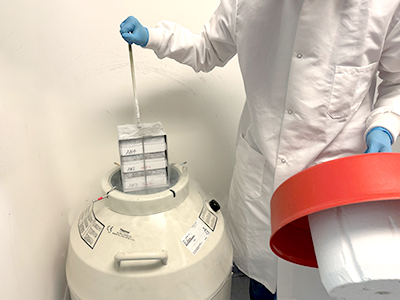
“Based on our data, it seems that GzmB is responsible for triggering this blood vessel growth via certain immune cells, called mast cells,” says postdoctoral fellow Dr. Daniel Yoo. “We plan to study the combination of two different types of drugs — a GzmB specific inhibitor and a mast cell stabilizer — to combat blindness caused by wet AMD.”
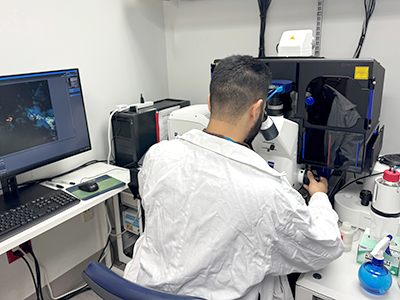
The first line of treatment the team is investigating is an injection to deliver these drugs directly to damaged areas in the retinas of AMD patients. They are also creating an eye drop to prevent GzmB from destroying structures at the back of the eye, as well as to prevent mast cells and RPE cells from releasing GzmB. The eye drop would be less invasive and less uncomfortable than injections, improving the overall patient experience.
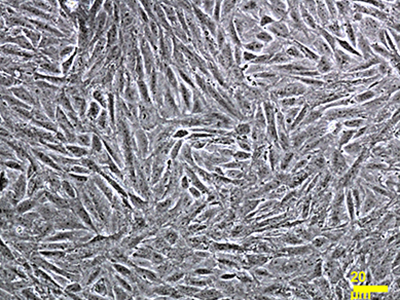
“The therapy that we are developing would benefit people who are diagnosed with AMD, with potential added benefits for other populations, such as individuals with corneal dystrophies and diabetes-related retinopathy,” explains medical student Manjosh Uppal. “If we can find a way to prevent the loss of vision for many Canadians, that is a big deal.”
Halting the progression of wet AMD
The team’s efforts to develop this novel therapy have received national recognition. In 2023, Uppal and Yoo participated in Eye on the Cure, a prestigious competition hosted by Fighting Blindness Canada that highlights inspiring projects on eye health and raises awareness for vision research. The duo won the competitive first round of the competition and a $10,000 Inspiration Award, being one of only five teams selected across the country. Watch Manjosh and Daniel speak about the project in the Eye on the Cure competition below.
“Our research has a lot of potential to create a treatment that could improve the quality of life for millions of people worldwide,” says Uppal. “That is something that I find inspiring and motivates me to keep going.”
"Behind the Lab Doors” is a Research Insider series that offers a behind-the-scenes glimpse into the labs of health researchers across VCHRI. These stories will explore research currently in the works, including ongoing and long-term studies that have the potential to directly impact quality of care for patients and clinicians. To feature a study from your VCHRI-affiliated lab, contact us at vchricommunications@vch.ca.


